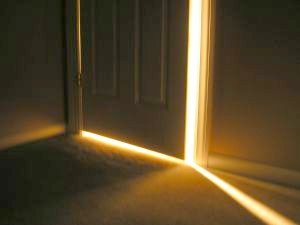 There are times, sometimes just moments, when we feel inspired and close to the Al-mighty. Maybe we’re in the presence of a special person, in the final moments of Yom Kippur, the holiest day of the year, or we witnessed the birth of a new baby. Those spiritual moments don’t seem to last though, and we may feel we’re more often in feeling unspiritual, disconnected, driven from the joys and blessings. Where is G-d at those times? Does He know that we’re hurting and alone, longing for something to smile about?
There are times, sometimes just moments, when we feel inspired and close to the Al-mighty. Maybe we’re in the presence of a special person, in the final moments of Yom Kippur, the holiest day of the year, or we witnessed the birth of a new baby. Those spiritual moments don’t seem to last though, and we may feel we’re more often in feeling unspiritual, disconnected, driven from the joys and blessings. Where is G-d at those times? Does He know that we’re hurting and alone, longing for something to smile about?
Hagar, the maid-servant of Abraham and Sarah, is driven from her master’s home, and exiled to the desert. Rejected and alone, G-d appears to her through a series of angels and instructs her to return to Abraham and Sarah, bear the affliction she was suffering, and He promises her that she’ll give birth to Ishmael, the father of a powerful nation.
In response to the revelation, Hagar issues a somewhat cryptic call to G-d: “You are the G-d of seeing,” “Have I also seen here after I have seen?” The classic commentary of Seforno explains: “You are always the G-d of seeing, everywhere, not only in the house of our father Abraham. As our Sages say (Bava Metzia 59a), “All the gates are locked, except for the gate of [those who suffer] affliction.”
The holy tents of our biblical ancestors, the synagogue, or those sparks of spiritual connectedness are not the only dwelling of His Holy Presence . King David sings, “He will call Me and I will answer him. I am with him in distress (Psalms 91:15).” G-d comes to us when we’re hurt, forsaken, and disconnected. Even if we’re too broken to lift our heads or take visitors, He’s paying us a special visit. The challenge to recognize this during those times of pain is great, but they are truly opportunities to talk directly to G-d and feel His closeness. King David again: “He has not despised or abhorred the cry of the poor, He hasn’t hidden His face from him; and when he cried to Him, He listened (Psalms 22:25).” (Based on Tiferes Shimshon, HaRav Shimshon Pincus zt”l)



